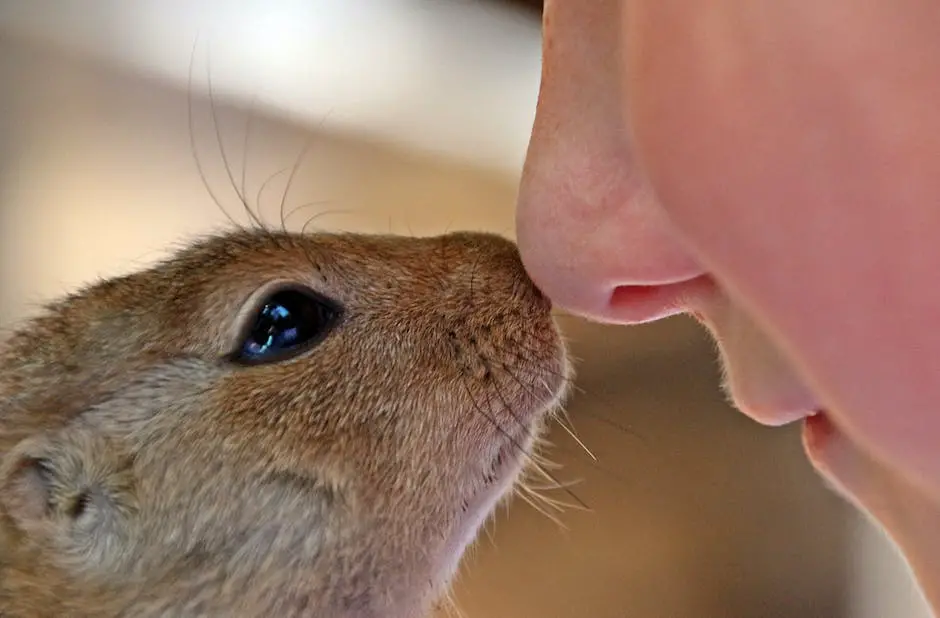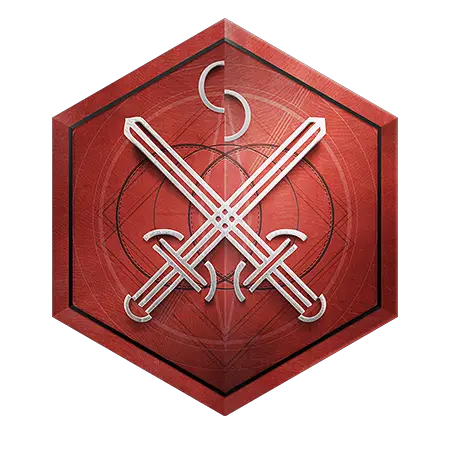General
Trust Goes Both Ways: Destiny 2’s Loyalty Test

Are you looking for an adventure in the digital world that promises an adrenaline high and a potential heart attack? Then, Destiny 2’s Loyalty Test awaits! Beware, though, true to its name, this challenge demands an unyielding allegiance to the game, where trust goes both ways. In this article, we’ll explore the twists and turns of this digital test of loyalty! Buckle up, Guardians, it’s going to be a wild ride.
Trust Goes Both Ways: Destiny 2’s Loyalty Test
Destiny 2 has been testing our loyalty since the day it was released. But now, it’s time for us to turn the tables and test the game’s loyalty. Yes, you heard it right! Trust goes both ways.
As we gear up for the Season of the Lost, it’s time to put our faith in the game and see whether it reciprocates or not. Here’s how we plan to put Destiny 2 to test:
- Testing the servers: We’ll be putting the servers under a lot of stress to see how they hold up. All hardcore Destiny 2 players know that server instability can ruin the gaming experience. We’ll be running dozens of online matches at peak hours to put the servers to test. Will the game be able to handle it?
- Playing solo vs fireteam: One of the biggest complaints of Destiny 2 players is that fireteams enjoy more rewards than solo players. So, we’ll be doing a little unscientific experiment to test whether solo players get lesser rewards than fireteams. We’ll play the same activity alone and with a fireteam and document the rewards. Let’s see who comes out on top.
- Exploiting bugs: Every game has its fair share of bugs and glitches. We’ll be exploiting them to see how easy it is to manipulate the game. Some of the most notorious glitches we’ll be exploiting are the infinite super glitch, looting through walls bug and infinite ammo glitch. Let’s see if we can break the game or not.
Destiny 2, it’s your turn to prove your loyalty to us. The tests will begin soon, and we’ll be watching you closely. Always remember, trust goes both ways.

– Introduction: Examining Destiny 2’s New Loyalty System
Are you ready to pledge your undying loyalty to your favorite Destiny 2 faction? Well, with the new loyalty system, you’ll have the chance to do just that. So let’s dive in and examine what this new system is all about.
First things first, let’s talk about what the loyalty system actually is. Essentially, it’s a way for you to earn rewards and increase your reputation with a specific faction of your choosing. You can pledge allegiance to one of the three factions: Dead Orbit, Future War Cult, or New Monarchy. Each faction has their own unique rewards and benefits, so choose wisely Guardian.
Once you’ve made your decision and pledged your loyalty, you’ll be tasked with completing certain activities to increase your rank with your chosen faction. This could include completing strikes, crucible matches, or even just donating resources. As you increase in rank, you’ll earn rewards like new gear, shaders, and emblems. And who doesn’t love a good shader, am I right? So get out there and start pledging your allegiance, Guardian. Your faction needs you!
– Trust Building in Online Gaming Communities
Trust Building in Online Gaming Communities
So, you’ve joined an online gaming community and you’re eager to make some new friends. But wait, before you start sharing your personal information or engaging in risky behavior, let’s talk about how to build trust with your new gaming buddies.
First things first, be honest about your skills and experience. We all know that one gamer who claims to be an expert but can’t even navigate a menu. Don’t be that guy. Admitting to being a noob may seem vulnerable, but it’s actually a great way to earn respect from your peers. They’ll appreciate your honesty and might even offer to help you learn the ropes.
- Boldly admit to being a noob.
- Offer to help your fellow gamers.
- Respect your adversaries.
Secondly, offer to help your fellow gamers. Whether it’s offering advice on how to beat a tough boss or lending a hand during a team battle, being helpful is a surefire way to build trust. It shows that you’re invested in the success of the team, not just your own ego. Plus, who knows? You might make some lifelong friends in the process.
Lastly, respect your adversaries. Sure, it can be fun to trash talk and gloat after a victory, but remember that these are real people with real feelings. Plus, you never know when you might end up on the same team or facing off in a different game. Treating others with kindness and sportsmanship will earn you respect and goodwill, even in the cutthroat world of online gaming.
– Benefits and Drawbacks of the Loyalty System
Benefits and Drawbacks of the Loyalty System
Are you one of those people who collect loyalty cards faster than you can say “points please”? Or do you avoid them like the plague? Whatever your stance, here are some pros and cons of the loyalty system to consider:
- Benefits:
- Freebies and discounts – Who doesn’t love a good deal? Whether it’s a free coffee or 20% off your next purchase, loyalty programs can save you some serious cash.
- Exclusive perks – Some loyalty programs offer VIP treatment to their most loyal customers, including early access to sales, personal shopping services, and even invitations to exclusive events.
- Brand loyalty – Once you become a regular at a particular store or restaurant, it’s hard to imagine going anywhere else. The sense of community that comes with being a loyal customer can be a powerful motivator.
- Drawbacks:
- Privacy concerns – Many loyalty programs require you to hand over personal information such as your name, email address, and buying habits. This data can be used for targeted advertising or even sold to third-party companies.
- Clutter – Loyalty cards can quickly pile up in your wallet, making it impossible to find what you need. Plus, do you really need another keychain fob?
- FOMO – Fear of missing out is a real thing, and loyalty programs know how to use it to their advantage. Seeing all those points add up can be addictive, even if you don’t really need that extra slice of pizza.
So, whether you’re a loyalist or a skeptic, it’s up to you to decide if the benefits of a loyalty program outweigh the drawbacks. Just be sure to read the fine print and only sign up for programs that truly offer value and align with your values!
– The Psychology of Trust and Loyalty in Video Games
Trust and loyalty are not just important in real life, they are equally important in video games. The psychology behind them can be quite intriguing. Let’s delve into the minds of video game players and explore what drives trust and loyalty in gaming.
Firstly, in video games, trust is built through shared experiences, co-operation and teamwork. When players work together towards a common goal, it creates a sense of camaraderie and trust. It’s important to maintain clear communication and respect each other’s strengths and weaknesses to build a solid foundation for trust. Whether it’s raiding in World of Warcraft or playing in a competitive game like League of Legends, a little trust can go a long way.
On the other hand, loyalty in gaming stems from many factors. It could be because of a shared love for a certain game or developer, or it could be because of a strong social bond with other players in a particular community. Loyalty can also be driven by quality game updates, engaging storyline or satisfaction with a game’s support team. Whatever the reason may be, when a player is loyal to a game, it’s not just about ticking off checkboxes on a list, it’s because they truly believe that the game is worth investing their time and money in.
So, whether you are playing with friends or strangers online, trust and loyalty can make or break it in the world of gaming. It’s the human element that makes it all so fascinating. And if you find yourself struggling to trust or be loyal, just remember that in the end – it’s all just a game.
– Conclusion: The Importance of Trust in Online Gaming Communities
As we wrap up our discussion on the importance of trust in online gaming communities, it’s important to emphasize just how vital it is to have faith in the people you’re playing with. Trust is what holds our digital worlds together, much like duct tape holds our computers together.
Without trust, an online game can quickly become a chaotic mess. Imagine playing a game of World of Warcraft with a group of players who constantly betray each other, stealing loot and sabotaging one another’s missions. It’d be like trying to drive a car with no steering wheel – pretty difficult, right?
But fear not, dear gamers! Trust can be cultivated in the online world, just like it can in the real world. By treating others with respect, being honest, and building meaningful connections with our fellow players, we can all work together to create a virtual community that is marked by mutual trust and respect. And who knows, maybe we can even teach the real world a thing or two about how to build better communities!
Trust Us, You Passed
Congratulations on making it to the end of this article about Destiny 2’s Loyalty Test! We hope you now understand the importance of building trust in your #squadgoals, both in real life and in the virtual world.
Remember, trust goes both ways, and if your fireteam members have your back, make sure you return the favor. Whether it’s joining them in raid battles or simply lending an ear when they need someone to talk to, being a loyal teammate will pay off in Destiny 2… and in life.
So keep on gaming, guardians, and keep showing that trust and loyalty, no matter what challenges you face. And who knows, maybe one day you’ll find yourself a member of the elite group of Guardians who have completed Destiny 2’s most grueling challenges. Until then, keep your head up, your gun at the ready, and your loyalty unwavering.









